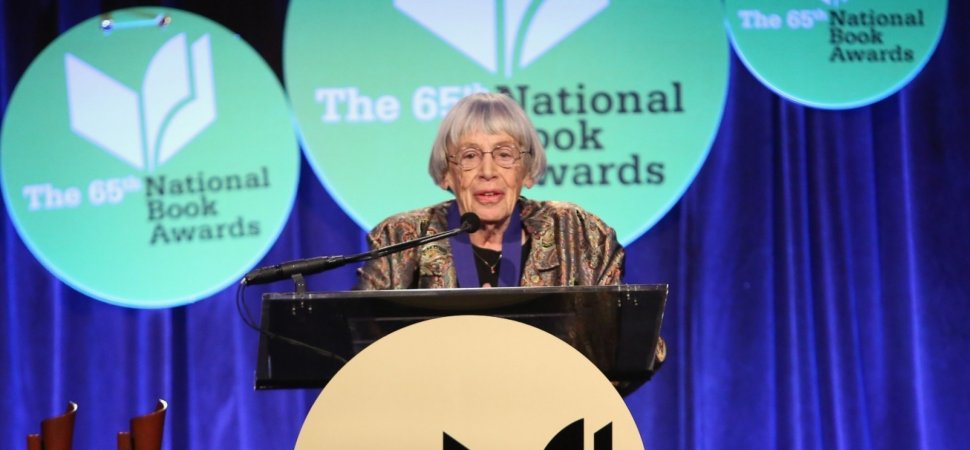
Want to change the world? Begin by envisioning it as it could be.
The world of literature–science fiction and otherwise–is a much sadder place this week after the loss of the iconic novelist and writer Ursula K. Le Guin, who died at home, after months of ill health. Her list of accomplishments is impressive–she authored more than 20 novels, a dozen books for children, books of essays, novellas, short story collections, and poetry collections. Later writers, from Salman Rushdie to Neil Gaiman, were influenced by her work. She won the National Book Award and was one of only four authors to have her work collected and published by the Library of America during her lifetime. She not only won both the Hugo and the Nebula prizes–Science Fiction’s highest honors–she was the first person to win both prizes twice for the same two books, her novels The Left Hand of Darkness and The Dispossessed. She authored the Earthsea series, inspired in some ways by J.R.R. Tolkien’s Lord of the Rings, but with a very different point of view.
Robert Kennedy famously said, “There are those that look at things the way they are, and ask why? I dream of things that never were, and ask why not?” That quote perfectly describes what was so powerful about Le Guin’s work. In her best books (or at least the ones I love best) she would create an imaginary world that was more just and more enlightened than the real one, although often the environment was harsh and the people who lived there faced terrible challenges. She was an ardent feminist, and in The Left Hand of Darkness, she created a world in which gender is not a permanent condition, but changes over the course of an individual’s life, as it can for certain fish species in real life.
Although she wasn’t an anarchist, she was fascinated with anarchy (in which there are no government or laws as such, but people are self-governing) and Taoism, which emphasizes, balance, compassion, and frugality. So in The Dispossessed she imagined a moon colonized by anarchists who had rejected the hedonistic, capitalist ways of the planet it orbited and had abolished all forms of ownership. Except for trading resources from the moon for needed supplies from the planet, the two populations have no contact, until the book’s protagonist, who grew up on the moon, decides to visit the planet and see it for himself. Those are the books that stick best in my memory, but there are others: The Lathe of Heaven, imagines a world in which people’s dreams can change actual reality.
Le Guin studied anthropology and sociology on the way to creating her alternate worlds and it shows. You wind up asking yourself if a society like this really could exist, or maybe hoping that it could. At least, I did.
She never backed down.
Even in a constantly evolving and sometimes ambiguous age, Le Guin never lost the courage of her convictions or wavered in her deeply held beliefs. In 1987, she turned down a request from a major publishing house to blurb a new science fiction anthology, writing that she could not imagine herself supporting a book “which not only contains no writing by women, but the tone of which is so self-contentedly, exclusively male, like a club, or a locker room.”
Almost 30 years later, when given a lifetime achievement award by the National Book Foundation, rather than focus her speech on praising publishing and thanking the Foundation for the honor–which is certainly what most people would have done–she lambasted the entire industry instead. “Developing written material to suit sales strategies in order to maximize corporate profit and advertising revenue is not the same thing as responsible book publishing or authorship,” she declared. She said that at the end of a long career, “I don’t want to watch American literature get sold down the river.”
Most strikingly, she said this:
“Any human power can be resisted and changed by human beings. Resistance and change often begin in art. Very often in our art, the art of words.”
She never stopped imagining a world in which things could be made better. Those are big words for the rest of us to live up to. But inspiring ones as well.
